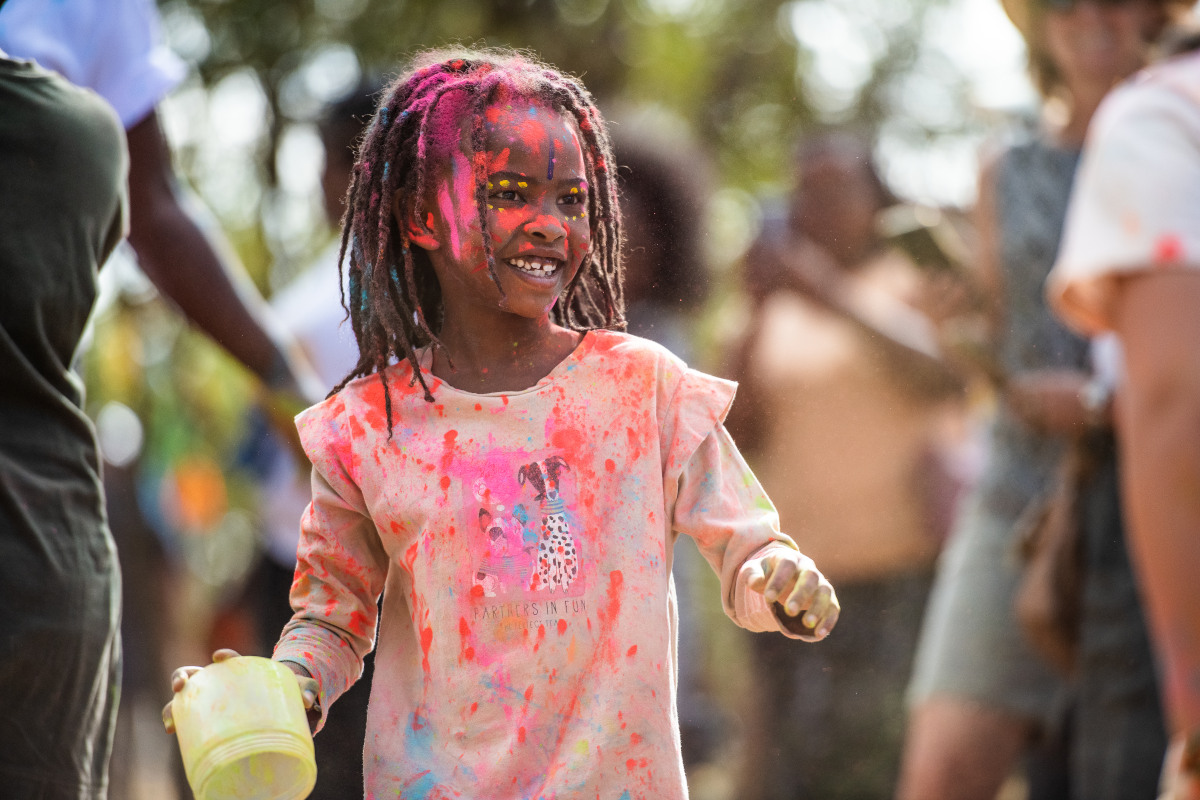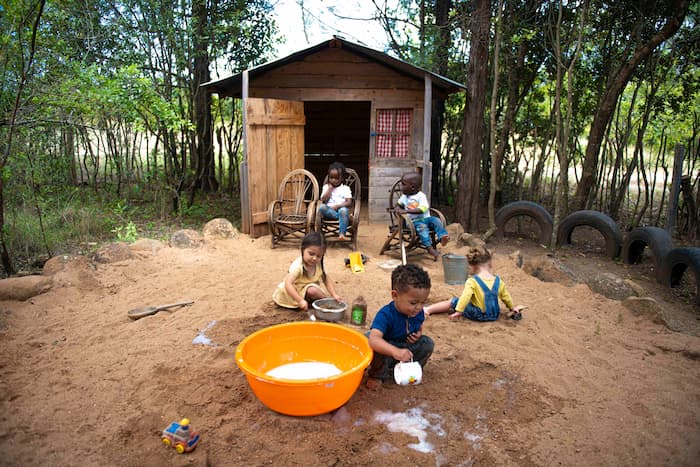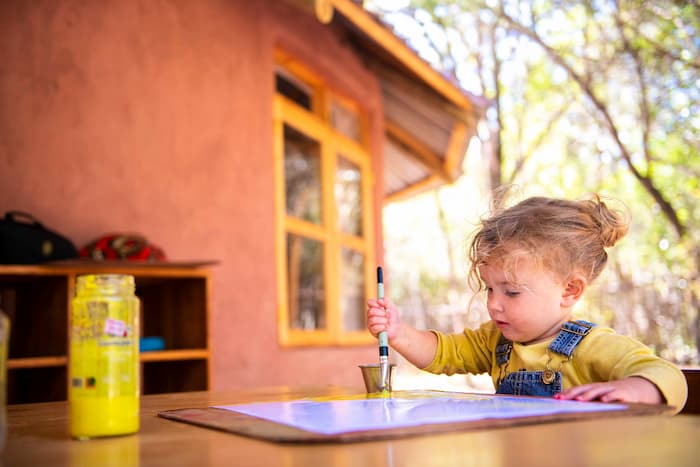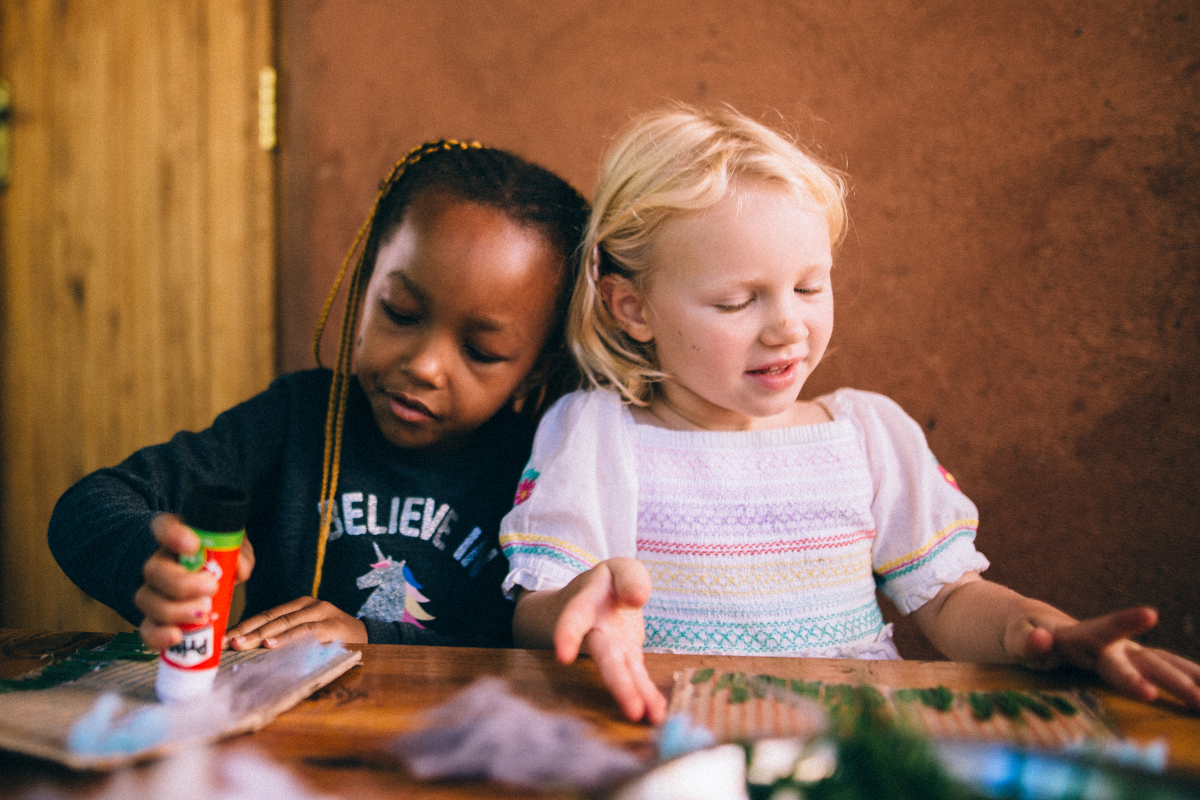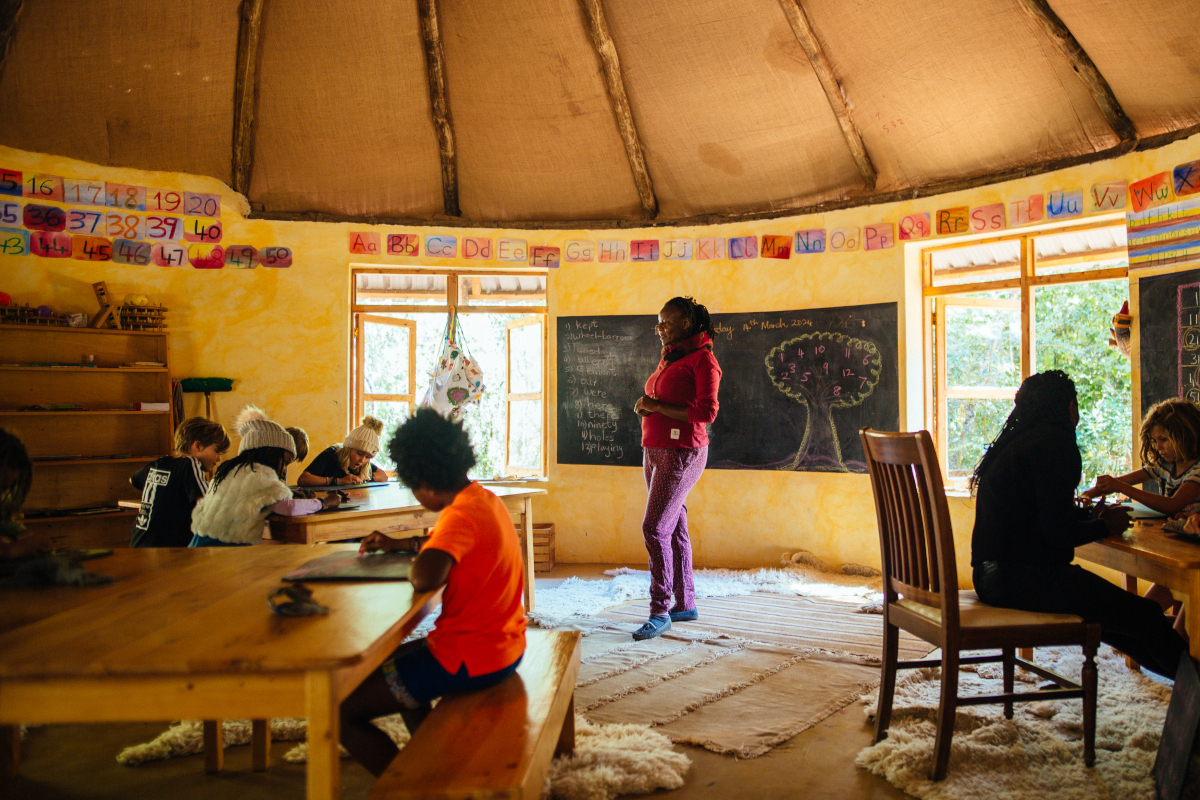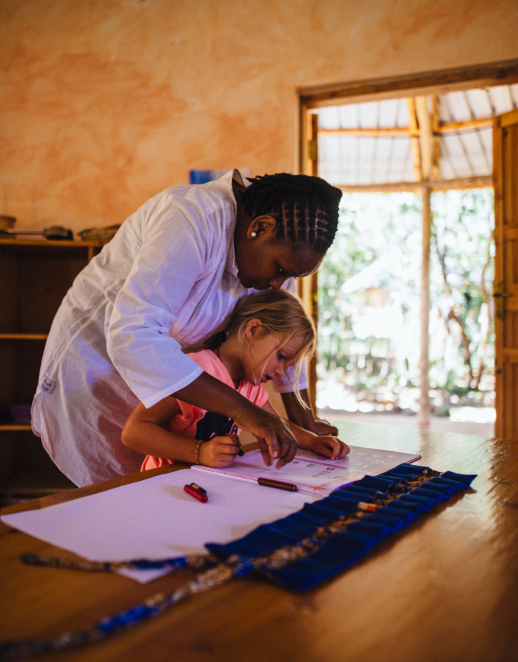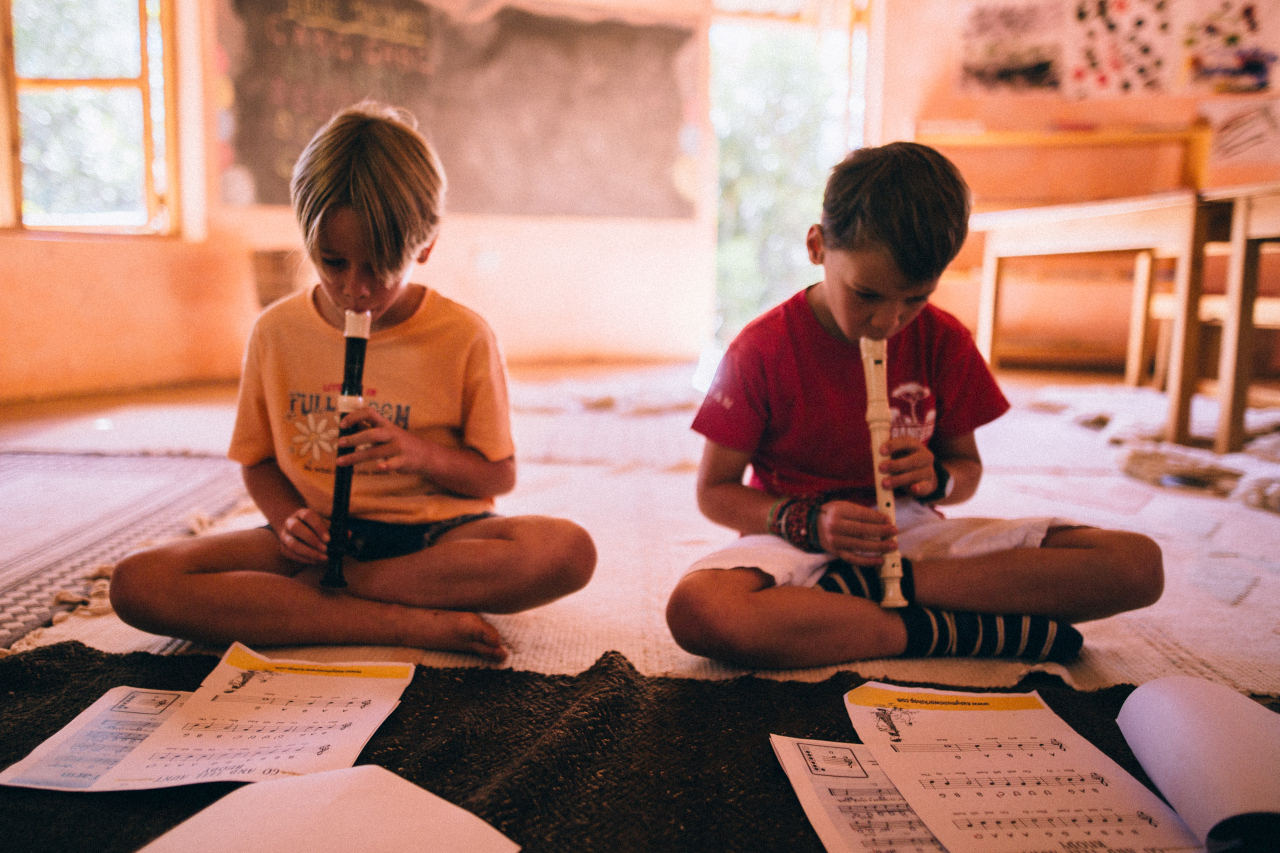| 1 |
Fairy Tales (2 blocks)
Introduction to Letters through Fairy Tales (2 blocks)
Nature Stories (2 blocks)
Math (2 or 3 blocks): quality of numbers, whole numbers,
counting to 144, the four processes using numbers 0-24,
symbols of four processes, subtraction facts to 20,
multiplication tables, 2x, 3x, 10; using rhythm as much as possible.
|
| 2 |
English
Mathematics
Child's Environment
Legends of Saints (1 or 2 blocks)
Local stories and tales (1 block)
Math (3 or 4 blocks): times tables through12,
number patterns, column adding, situation problems, time and money.
|
| 3 |
Homes & Shelters (1 block)
House Building (1 block)
Clothing, Fabric & Fiber (1 block)
Farming & Food (1 block)
Math ( 3 blocks): carrying & borrowing,
times table practice, long division, number patterns, weights & measures,
telling time, money calculations.
Farming
Stories
|
| 4 |
Human Being & Animal (1 block)
Stories (1 block)
Local Geography (1 block)
Grammar (included in other main lesson work)
Math (3 or 4 blocks): review operations, times tables, averages,
long division, factoring, proofs, word problems, mental math.
|
| 5 |
Ancient History – India, Persia, China, Egypt, Greece (2 or 3 blocks)
Botany (1 or 2 blocks)
North American Geography or local geography (1 block)
Math (3 blocks): decimals, fractions, mixed numbers, reciprocals,
metric system, map references, simple laws and patterns in math.
Botany
Zoology
|
| 6 |
History – Fall of Troy through Roman History; Medieval History or local history(3 blocks)
Geography of the World (1 or 2 blocks)
Physics (1 block)
Geology & Mineralogy (1 block)
Astronomy (1 block)
Math (2 blocks): percentage, ratio, proportion, profit & loss,
simple interest, algebraic equations, geometric drawing with ruler & compass,
string designs, visual discovery of geometric patterns.
|
| 7 |
History and Literature (3 or 4 blocks): the Age of Exploration & Discovery,
the Renaissance 1400-1700; Arthurian Legends, Biographies, Poetry
Geography of the World (1 block): Africa, Europe, weather and map reading, geographical terms.
Physics (1 bock)
Chemistry of Combustion (1 block)
Astronomy (1 block)
Health & Nutrition (1 block)
Math (2 or 3 blocks): geometry, perspective drawing, business math, graphing, roots & powers.
|
| 8 |
History and Literature (2 blocks): 1700 to present – Industrial Revolution,
colonialism, American History including life of people & biography: Shakespeare,
Napoleon, Washington, Jefferson, Lincoln, inventors 0r local history or history of another country or region.
Literature (2 blocks): short story, elements of a story, writing a short story, Shakespeare play.
Physics (1 block)
Chemistry (1 block)
Physiology (1 block)
Geography of the World (1 block): continents (integrate with history)
Math (2 blocks): practical math, set theory, percent, equations, solid geometry, volumes of solids.
|
